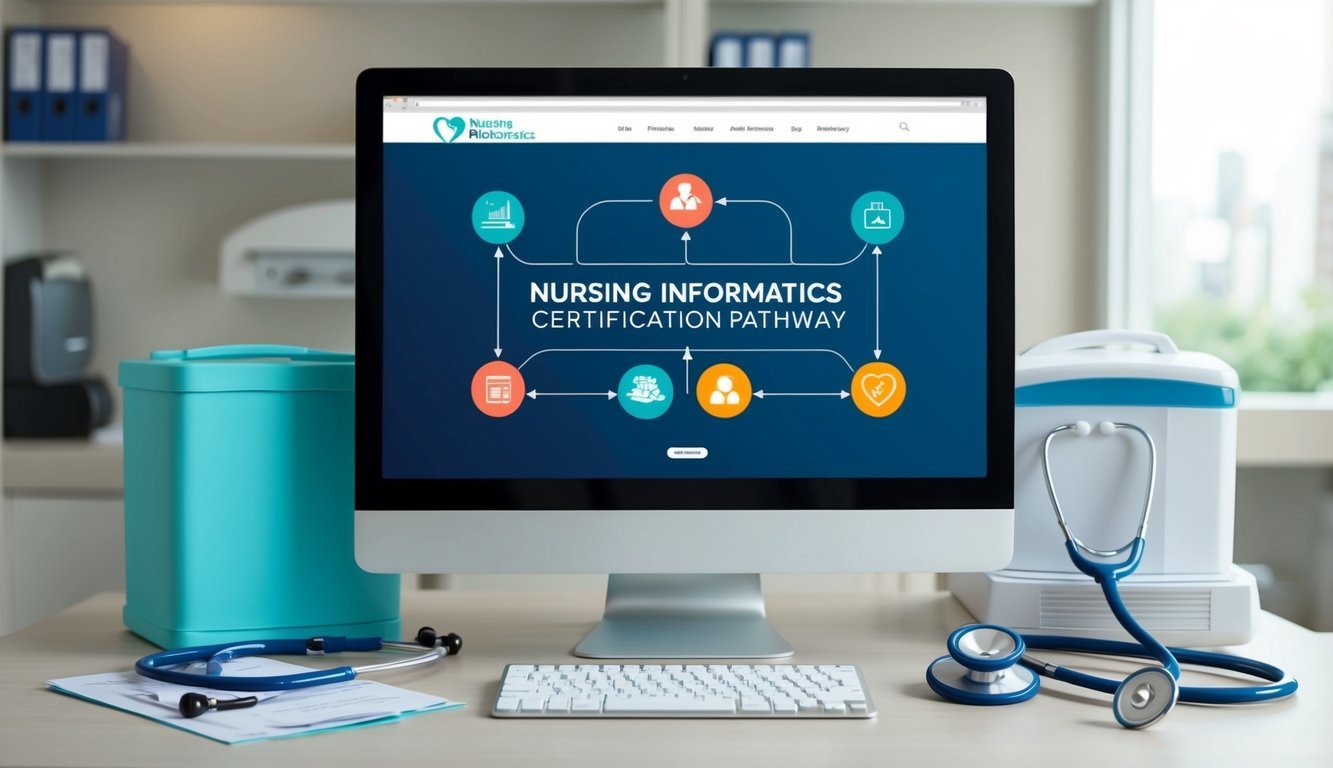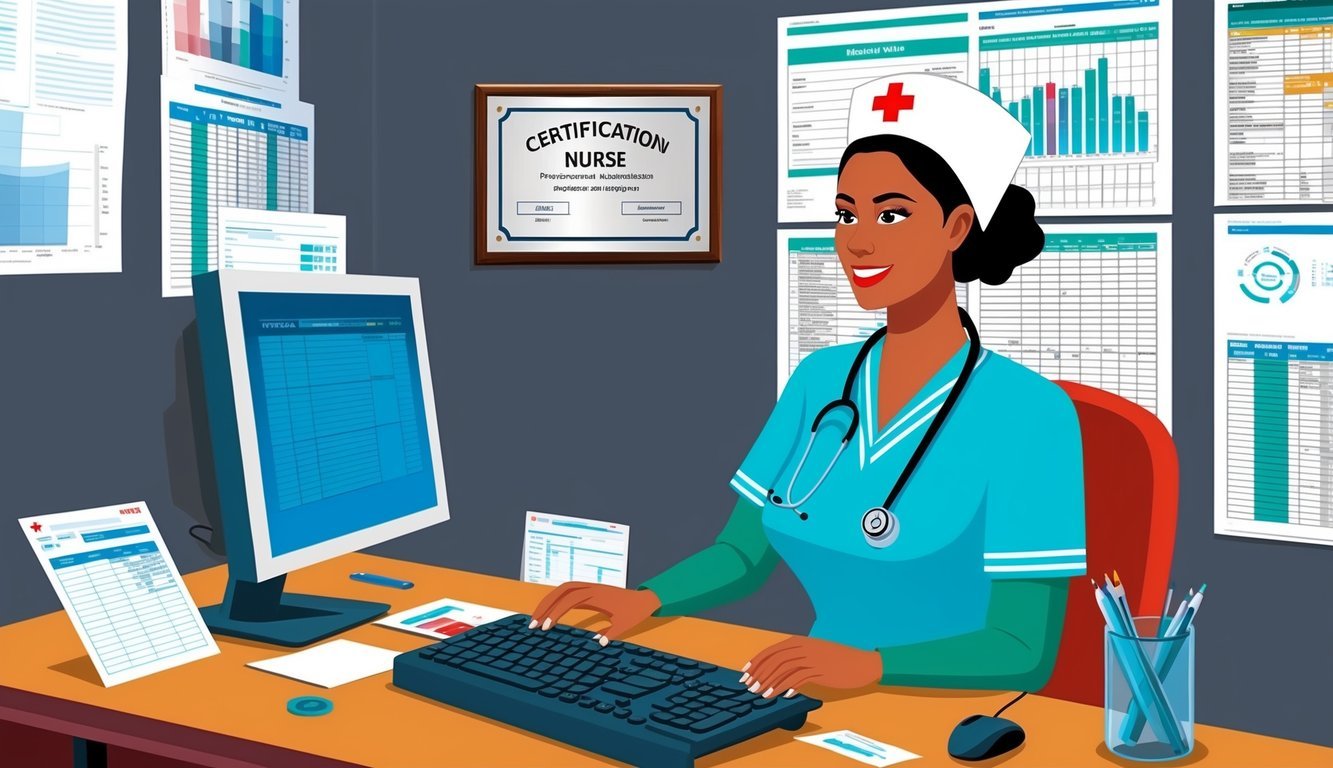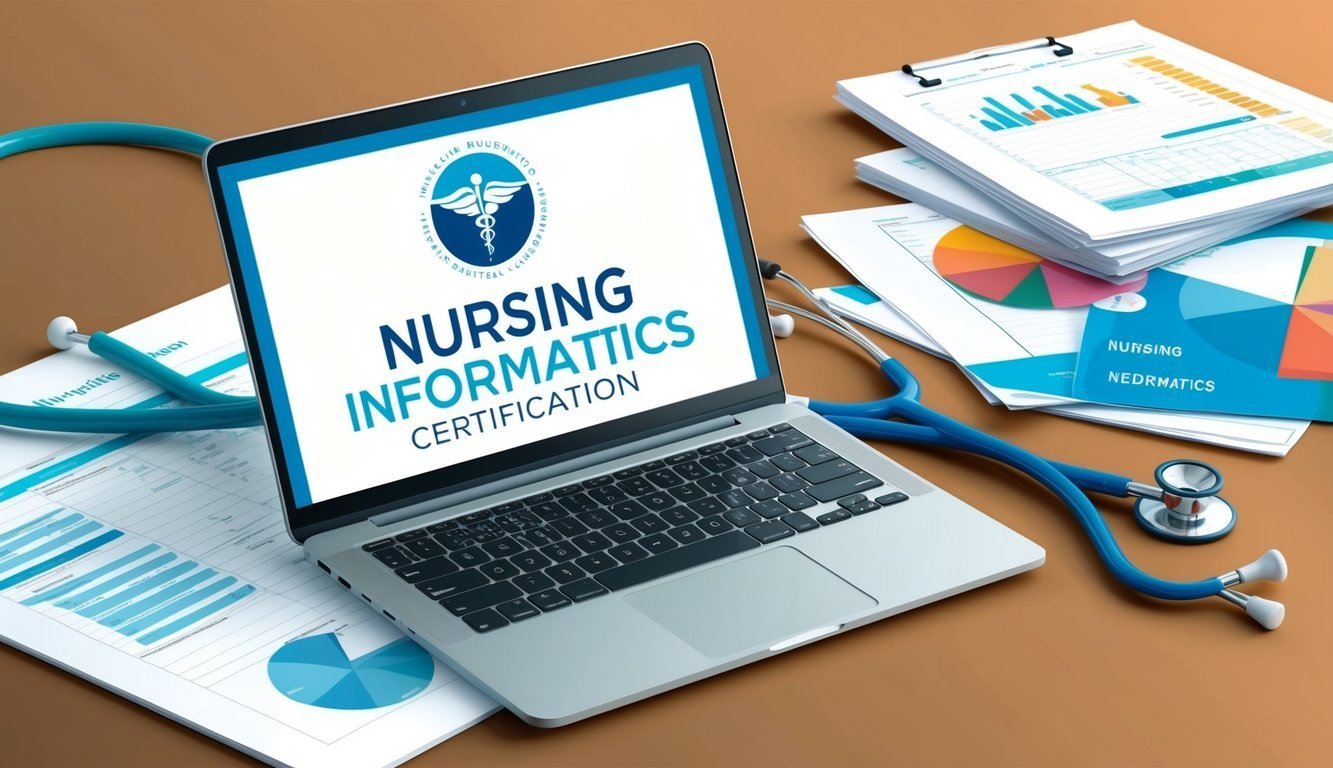Nursing informatics certification is increasingly essential in the evolving healthcare landscape, bridging the gap between nursing and technology.
This certification empowers you to leverage data and information systems to improve patient care and outcomes.
As a registered nurse, obtaining the Nursing Informatics Certification (NI-BC) from the American Nurses Credentialing Center (ANCC) can enhance not only your skill set but also your career prospects.
Through this certification, you will validate your expertise in informatics, gaining recognition for your ability to integrate technology into nursing practice.
The process involves meeting specific eligibility criteria, including education and experience, as outlined by the American Nurses Association.
By investing in this certification, you position yourself at the forefront of healthcare advancements, contributing significantly to the field.
Whether you are looking to advance your career or shift into a specialized role, pursuing nursing informatics certification opens doors to numerous opportunities in healthcare organizations.
Understanding the requirements and benefits of this certification can give you a competitive edge in today’s job market.
Understanding Nursing Informatics
Nursing informatics is an essential component of modern healthcare, integrating technology with nursing practice to enhance patient care and streamline processes.
By leveraging data and healthcare technology, you can significantly improve clinical decision-making and patient outcomes.
Defining Nursing Informatics
Nursing informatics combines nursing science, information technology, and data management to support nurses in delivering effective patient care.
It encompasses various activities, such as managing Electronic Medical Records (EMRs) and utilizing healthcare technology to enhance administrative and clinical tasks.
The primary goal is to optimize patient outcomes by ensuring that accurate and timely information is available during care delivery.
This field empowers nurses to analyze data trends, leading to informed decisions regarding patient treatment plans.
As a certified professional, you will understand these systems and contribute to creating a more efficient healthcare environment.
Role of Informatics Nurses
Informatics nurses play a critical role in bridging the gap between healthcare and technology.
Your responsibilities can include:
-
Implementing Health IT Solutions: You will help integrate healthcare technologies that enhance patient care, such as electronic medical records and telehealth systems.
-
Training Staff: Educating colleagues on the effective use of technology and data systems is essential for maximizing their benefits.
-
Data Management: Collecting and analyzing patient data allows for improved healthcare outcomes.
-
Quality Improvement Initiatives: Using data-driven insights, you will drive initiatives aimed at improving patient safety and care quality.
By embracing these roles, you can significantly influence how care is delivered, ensuring that technology serves as a facilitator of improved health outcomes.
For more information, visit Nursing Informatics Certification Requirements.
Pathway to Certification

Achieving nursing informatics certification requires careful attention to eligibility, preparation, and understanding the application process.
Each step is essential in ensuring a smooth path to earning your Informatics Nursing Certification.
Eligibility Requirements
To qualify for the Informatics Nursing Certification exam, you must hold an active RN license.
This means you should have passed the NCLEX-RN exam.
Additionally, an applicant must have a minimum of two years of experience as a registered nurse.
It is also necessary to complete at least 30 hours of continuing education in informatics within the last three years.
You will need an official transcript from your nursing program, showcasing your educational qualifications.
For comprehensive eligibility details, review the guidelines set by the ANCC.
Exam Preparation
Preparing for the certification exam is crucial.
The exam aims to assess your knowledge in key informatics areas such as data management, system implementation, and nursing practice improvement.
Consider enrolling in specialized exam prep courses.
These resources often provide practice questions, study guides, and workshops.
The ANCC provides various materials, including a candidate handbook that outlines the content areas tested.
Familiarizing yourself with the types of questions and format can significantly increase your confidence and performance.
Application Process
To apply for the certification, you need to complete the certification application on the ANCC website.
Ensure you have your RN license information, educational details, and proof of continuing education ready.
The application is typically processed within a few weeks.
After approval, you will receive a confirmation and further instructions about scheduling your exam.
Be mindful of any application fees and deadlines.
Check the ANCC site for the most current application details.
Testing Centers and Scheduling
Exams are administered at Prometric Test Centers.
After your application is approved, you can schedule your test through Prometric’s online portal.
Consider the following when choosing a testing center:
- Proximity: Select a site close to your location.
- Availability: Check for open dates that suit your schedule.
Before your test day, ensure you understand what to bring, such as identification and any required documents.
Look into the testing center’s policies to avoid any surprises.
Exam Content and Structure
This section provides a detailed overview of the exam content and structure for Informatics Nursing Board Certification.
Understanding these components is crucial for effective preparation.
Test Content Outline
The Test Content Outline serves as a roadmap for the certification exam, detailing the key subject areas you need to master.
This outline typically includes major domains such as:
- Professional Practice: Your knowledge of nursing informatics competencies and standards.
- Information Systems: Understanding system applications in nursing.
- Data Management: Skills in data collection, analysis, and utilization.
The examination consists of 175 questions, where 150 are scored and 25 serve as pretest items that help validate future exam content.
Familiarizing yourself with this outline is essential in guiding your study efforts effectively.
For more information, visit the American Nurses Credentialing Center.
Foundations of Practice
In the Foundations of Practice section, you will focus on the essential knowledge necessary for effective informatics nursing.
This area includes:
- Nursing Informatics Scope: Understand the role of nursing informatics in healthcare.
- Clinical Knowledge: Familiarity with evidence-based practices and standards of care.
This foundation emphasizes critical thinking and decision-making processes.
You’ll examine the intersection of nursing practice and technology, as well as the ethical considerations involved.
Mastery of these principles is vital in passing the certification exam and excelling in a nursing informatics role.
System Design Life Cycle
The System Design Life Cycle encompasses the processes involved in developing and implementing healthcare information systems.
Key components include:
- Analysis: Assessing user needs and system requirements.
- Design: Creating system specifications.
- Implementation: Deploying the system in a real-world environment.
Understanding these stages enables you to participate effectively in projects aimed at improving healthcare delivery through technology.
You will encounter questions related to project management, user training, and system evaluation during the exam.
Awareness of these concepts is a critical preparation aspect.
Data Management
Data Management is a crucial domain in nursing informatics that focuses on the collection, storage, and utilization of data.
Important elements include:
- Data Standards: Familiarity with terminologies and classification systems such as SNOMED or LOINC.
- Data Analysis: Interpretation of clinical data for decision-making and policy formulation.
You will need to demonstrate an understanding of how to leverage data to improve patient outcomes and enhance healthcare operations.
This knowledge is not only testable content but also essential for your future practice in nursing informatics.
Credentialing and Accreditation

Credentialing and accreditation play crucial roles in ensuring that nursing informatics certifications meet industry standards.
Understanding these processes can help you navigate your professional journey effectively.
Accredited Certifications
The primary certification for nursing informatics is the Nursing Informatics Certification (NI-BC) offered by the American Nurses Credentialing Center (ANCC).
This certification is designed to validate your competency in informatics nursing practices.
Accreditation is provided by recognized bodies, ensuring the certification’s credibility.
The American Nursing Informatics Association (ANIA) supports this certification by advocating for high standards within the profession.
To maintain certification, you need to engage in continuing education and professional development activities, which can be tracked through the ANCC.
Certifications generally need renewal every five years, ensuring you stay current in your field.
Verification and Credentialing Bodies
Multiple organizations oversee the credentialing process in nursing informatics.
The National Commission for Certifying Agencies (NCCA) ensures that certification programs meet certain standards for validity and reliability.
Another key body is the Accreditation Board for Specialty Nursing Certification (ABSNC), which accredits various nursing specialty certifications, including nursing informatics.
They focus on establishing robust guidelines for certification validity.
As you progress in your career, it’s essential to verify your credentials through these recognized organizations.
These bodies help you demonstrate your qualifications to employers and ensure you meet the standards required in the evolving healthcare landscape.
Maintaining and Advancing Your Certification
Maintaining your nursing informatics certification requires ongoing effort to stay current with the latest practices and guidelines.
This process involves certification renewal, continuing education, and potentially pursuing advanced certifications to enhance your credentials and career opportunities.
Certification Renewal Process
To maintain your certification, you must navigate the certification renewal process effectively.
For example, if you hold the RN-BC (Registered Nurse – Board Certified) or NI-BC™ (Nurse Informatics – Board Certified), you will need to renew your certification every five years.
The renewal typically requires proof of continued professional development through a specified number of continuing education credits.
The fees for renewal may vary, often around $395 for non-members of the American Nurses Credentialing Center (ANCC) and $295 for members.
To receive detailed instructions, you can visit the ANCC Informatics Nursing page, which outlines specific steps and requirements.
Continuing Education and Professional Development
Engaging in continuing education is essential for your professional growth in nursing informatics.
You must complete a minimum of 75 continuing education hours within your renewal period, focusing on areas pertinent to nursing informatics.
Options for continuing education often include online courses, workshops, and seminars.
Topics may encompass health information technology, data management, and patient care improvement strategies.
Consider expanding your knowledge through resources like the Nurse.org which offers various courses tailored to nursing informatics.
Staying updated in this field will not only fulfill the renewal requirements but also keep your skills sharp.
Advanced Certifications
As your career progresses, you may explore advanced certifications that can elevate your professional standing.
Certifications such as CAHIMS (Certified Associate in Healthcare Information and Management Systems) and CPHIMS (Certified Professional in Healthcare Information and Management Systems) are beneficial for demonstrating expertise in healthcare information management.
These certifications can enhance your employability and potentially your salary.
However, they typically require additional education and experience, so assess your qualifications carefully.
Pursuing advanced certifications may involve passing a board certification examination specific to the credential you’re targeting.
You can look into additional resources available on Medical Technology Schools for further guidance on the processes involved.

